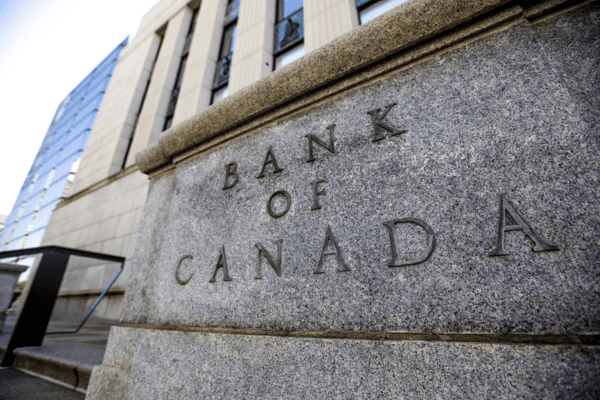Ready to Buy a Home in West Toronto? Here’s How to Get the Best Mortgage Rate
04/21/25

Thinking about taking the leap into home ownership? Whether you’re considering a character-filled semi in Bloor West Village or a modern condo near the Junction Triangle, mortgage rates are likely one of the first things on your mind. A quick online search for “best mortgage rates Canada” will bring up countless lenders and brokers, but finding the lowest rate is only half the challenge.
Getting access to those low rates depends on your financial profile, credit history, and preparation. We’ve pulled together 10 practical tips to help you qualify for better mortgage terms so you can start your buying journey feeling informed, confident, and ready to move forward.

What Is a Mortgage?
Before we dive into how to find the best mortgage rates in Canada, especially for buyers in west-end neighbourhoods like High Park or Bloor West Village, let’s start with the basics.
Unless you plan to make an all-cash offer for the total cost of your new home, when you purchase it, you’ll need to have enough of your own money saved for a down payment. A mortgage is a loan from a lender that helps you finance the purchase of your home. Your down payment comes from your savings, and the mortgage pays the balance between your down payment and the property’s purchase price.
This is a standard part of the buying process across Toronto and beyond, whether you’re buying a starter condo or moving up to a detached family home.
Understanding Mortgage Terms and Amortization
When applying for a mortgage, whether you’re eyeing a stylish loft in the Junction or a detached home near Baby Point, you’ll need to decide on two important details: the mortgage term and the amortization period. These choices will directly impact how much you pay over time, the interest rate you’re offered, and the amount of your regular payments.
Mortgage Term
Your mortgage term is the length of time your current mortgage agreement remains in effect. In Canada, terms usually range from a few months to five years, sometimes more.
At the end of your term, you’ll either renew the mortgage under new conditions or, if you’ve paid off the full balance (which is rare), you’re done. Most homeowners go through several terms before paying off their mortgage in full.
Mortgage Amortization
Your amortization period is the total time it will take to pay off your mortgage completely. Over this period, more of your payment gradually goes toward the principal and less to interest.
In Canada, amortization limits are as follows:
- Up to 30 years for first-time buyers purchasing a new build with less than 20% down
- Up to 25 years for all other buyers with less than 20% down
If you’re putting down more than 20%, lenders may allow longer amortization depending on the product
Choosing the right combination of term and amortization is key, especially in competitive areas like Bloor West Village, where having clarity on your mortgage options can help you move quickly and confidently.
What Is a Mortgage Rate?
When you borrow money to buy a home, the lender charges interest—this is your mortgage rate. It’s a percentage applied to the amount you owe, and it helps cover the lender’s risk and operational costs. For buyers in west Toronto areas like Swansea or Runnymede, even a small change in your rate can make a big difference to your monthly payment.
Knowing how your mortgage rate works helps you compare options and plan your budget more accurately. The rate affects your monthly payment, how much you’ll pay over the life of the mortgage, and whether it fits comfortably within your household finances.
Several factors influence your mortgage interest rate:
- The total amount you’re borrowing
- How much you’ve saved for a down payment
- Whether the mortgage is fixed or variable, open or closed
- Any lender promotions or special offers
- Your credit score and financial stability
Keep in mind that your home serves as collateral. That means if you fall behind on your payments, the lender can take legal action to sell your home and recover the money owed.
Taking on a mortgage is a significant financial commitment. But if you find a competitive rate—and the right fit for your budget—it can save you thousands over the long term. That’s why many buyers in West Toronto choose to work with experienced professionals who can help navigate these decisions clearly.

10 Tips to Help You Secure a Great Mortgage Rate in West Toronto
Whether you’re buying your first condo near Keele Station or upgrading to a historic home in Baby Point, these practical tips will help you improve your chances of landing a mortgage rate that works in your favour.
1. Research Mortgage Interest Rates
There’s no single formula for choosing the best mortgage—especially in Toronto’s diverse housing market. Different types of mortgages affect the rate you’re offered, and the one that fits your financial picture might differ from someone else’s.
Generally, lenders offer prime mortgages to borrowers with:\n
- A credit score of 670 or higher
- A down payment of at least 10–20%
- A strong debt-to-income ratio
These are considered low-risk borrowers and tend to receive lower rates—saving potentially tens of thousands over the life of the mortgage.
If your credit score falls between 580 and 669, you may be offered a subprime mortgage, which comes with a higher interest rate due to added lender risk.
Before speaking to any lenders or mortgage brokers, it’s worth checking your credit score so you can better understand the rates available to you. If you’re unsure where to begin, The Smith Proulx Team can connect you with mortgage professionals who work with buyers across West End neighbourhoods and understand how to position your application for the best results.
Not sure how much mortgage you can afford? Use our Mortgage Affordability Calculator to get a clearer picture before you start shopping.
2. Lower Your Debt-to-Income Ratio
Your debt-to-income ratio is one of the biggest indicators lenders use to determine whether you’ll qualify for a favourable mortgage rate. It shows how much of your monthly income goes toward debt payments, including credit cards, car loans, and housing expenses.
Canada Mortgage and Housing Corporation (CMHC) recommends keeping your Gross Debt Service (GDS) ratio—the share of your income spent on housing—below 39%, and your Total Debt Service (TDS) ratio, which includes all monthly debts, under 44%.
If you’re considering buying in higher-priced areas like High Park or Bloor West Village, reducing this ratio can make a big difference in your affordability. Some simple strategies include:
- Paying down credit cards or existing loans faster
- Avoiding new debt or large purchases before applying
- Increasing your income through additional work or household income sources
This kind of financial prep helps lenders see you as a lower risk, which can open the door to better mortgage rates.
3. Improve Your Credit Score
If you’re planning to buy in West Toronto, whether it’s a two-bedroom condo in the Junction Triangle or a bungalow in Runnymede, a strong credit score will boost your chances of securing a better mortgage rate.
Even a modest improvement in your score could lower your interest rate enough to save you thousands over the life of your mortgage. It’s worth investing a bit of time upfront to clean up your credit report.
Here are a few practical steps:
- Pay bills on time, every time—this has the biggest impact on your score
- Clear up any collections listed on your credit report
- Reduce balances on revolving credit accounts
Avoid applying for new credit cards or loans while house hunting
If you’re unsure where your score stands, you can access your credit report for free through several Canadian services. And if you’re working with The Smith Proulx Team, we can recommend mortgage brokers who will help you assess and strengthen your credit profile before you apply.
4. Increase Your Income Stability
One of the clearest signs lenders look for is steady, reliable income. If you’re aiming to buy in West Toronto, especially in popular, competitive markets like Swansea or Baby Point Gates, having consistent earnings can help you secure a better rate and stronger pre-approval.
Start by reviewing your income and spending habits. Create a monthly budget so you know exactly how much you earn and where it’s going. Then, look for ways to boost stability, such as:
- Asking for additional hours or a raise at work
- Taking on freelance or part-time work
- Cutting back on unnecessary spending in the months leading up to your application
The goal is to show lenders that your income is dependable, and that you’re in a solid position to make regular mortgage payments—even if interest rates shift slightly in the future.
5. Get Your Employment History in Order
Before you sit down with a lender or get pre-approved for a home in areas like Bloor West Village or the Junction, take time to organize your employment history. Lenders want to see that you’ve had steady, reliable work over the past couple of years. It’s a key factor in determining whether you qualify for the best available mortgage rates.
Bring a clear record that includes:
- Job titles and employers
- Dates of employment
- Pay details (especially if you’re salaried or full-time)
- Any recent changes in position or hours
If you’re self-employed, you may need to provide more documentation, like tax returns or business financials. This is common in Toronto’s creative and tech industries, and something experienced mortgage brokers in our network can help with. Read our article about buying in Toronto as a Self-Employed individual.
Having this information ready upfront shows lenders that you’re financially stable and serious about your home purchase.
If you’re putting down less than 20%, use our CMHC Insurance Calculator to see what mortgage insurance might cost.

6. Save More and Boost Your Down Payment
In a market like west Toronto, where homes in neighbourhoods like High Park or Baby Point can command a premium, a larger down payment not only reduces the size of your mortgage but also gives you more leverage with lenders.
Putting down at least 20% can help you:
- Qualify for a lower interest rate
- Avoid mortgage loan insurance premiums
- Strengthen your overall application
It also demonstrates to lenders that you are financially disciplined and less likely to default. If you’re just shy of that 20% mark, even increasing your down payment by a few thousand dollars could improve your mortgage terms significantly.
And if you’re unsure how close you are to qualifying for a better rate, we’re always happy to connect you with a mortgage expert who knows the ins and outs of financing in our local neighbourhoods.
See how your down payment affects your monthly cost with our Mortgage Payment Calculator. It’s a great tool for budget planning.

7. Keep Cash Reserves on Hand
In a competitive market like West Toronto, having cash reserves in place can make a big difference when applying for a mortgage. Lenders often want to see that you’ve got a financial cushion—typically enough to cover three to four months’ worth of mortgage payments—just in case your income takes a temporary hit.
This safety net reassures lenders that you won’t fall behind if unexpected expenses pop up. It can also improve your chances of locking in a more competitive rate, especially when purchasing in neighbourhoods like Runnymede or Swansea, where homes tend to sell quickly.
If you’re preparing to buy, it’s worth building these reserves into your savings plan early in the process. It’ll put you in a stronger position with lenders—and give you extra peace of mind as you plan your next move.

8. Time Your Purchase Around Interest Rate Trends
Canada’s mortgage landscape has shifted dramatically in recent years. After a steep climb in rates between 2022 and 2023, the Bank of Canada began easing policy in mid-2024 to support affordability. As of December 2024, the benchmark rate had dropped to 3.25%, down from a peak of 5%.
If you’re planning to buy a home in West Toronto, where timing can be just as important as location, being aware of these rate movements can help you save significantly on both your monthly payment and total loan cost.
If you’re not in a rush, it might make sense to watch the market for a little while longer. Even a slight dip in rates could mean the difference between affording a semi in Bloor West Village versus settling for something smaller. And if you’re unsure whether now’s the right time to buy, we can walk you through current conditions and what they mean for your buying power.
Curious how rate changes could impact your costs? Our Mortgage Rates Calculator can help you compare scenarios based on today’s rates.
9. Know the Difference Between Low- and High-Ratio Mortgages
Planning to buy in neighbourhoods like High Park or Baby Point with less than 20% down? You’ll likely need what’s called a high-ratio mortgage, which means your loan must be backed by mortgage insurance. This protects the lender in case you can’t keep up with payments, but it adds extra cost to your monthly bills.
On the other hand, if you can save up at least 20% for your down payment, you qualify for a low-ratio mortgage. This not only helps you skip the insurance fees but also improves your odds of getting a more competitive interest rate.
In Toronto’s west end, where prices can stretch your budget, hitting that 20% mark can be a challenge, but it’s worth aiming for. If you’re unsure how close you are or want help building a strategy to get there, we’re happy to offer guidance or connect you with a local mortgage expert who can walk you through your options.
10. Compare Offers—and Consider Working With a Broker
After putting in the work to strengthen your finances, don’t settle for the first mortgage offer that comes your way. Shopping around is one of the smartest ways to ensure you’re getting the best rate, terms, and flexibility, especially in high-demand west Toronto neighbourhoods like the Junction Triangle or Swansea, where every dollar counts.
Be sure to look at more than just the interest rate. Compare:
- Amortization options
- Prepayment privileges
- Early exit or refinance penalties
- Lender incentives or limited-time offers
To make this process easier, many buyers team up with a mortgage broker. Brokers act as middlemen between you and various lenders, helping you compare a wide range of products without any cost to you. They’ll gather your financial info, match you with lenders, and negotiate on your behalf.
If you’re not sure where to start, The Smith Proulx Team can connect you with trusted brokers who understand how to work with buyers in our local market—and who know which lenders are offering the best options right now.
Ready to Make Your Move? Let’s Talk Mortgages That Work for You
Buying a home in West Toronto is an exciting step, but it’s also a big financial commitment. Securing the right mortgage is just as important as finding the perfect home.
You don’t have to figure it all out on your own. We’ve helped hundreds of buyers just like you connect with trusted mortgage brokers, understand local market conditions, and secure the financing they need to move forward with confidence.
Let’s set up a quick chat. Send us an email or call 416-826-4787 to get started. We’ll walk you through the steps, answer your questions, and help you take the guesswork out of mortgage planning so you can focus on finding a home you’ll love.
Ready to Make Your Move?
You don’t have to figure it all out on your own. We've helped hundreds of buyers just like you connect with trusted mortgage brokers, understand local market conditions, and secure the financing they need to move forward with confidence.



